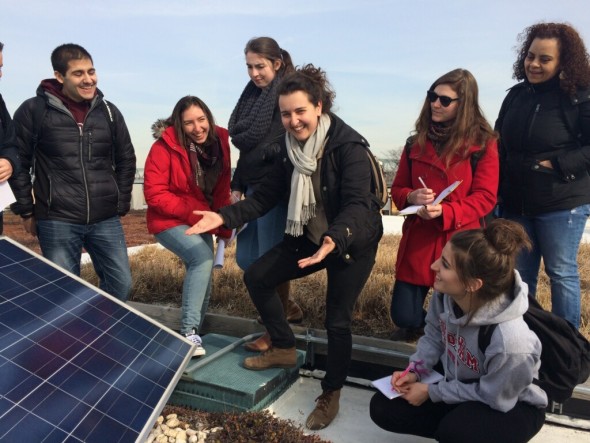When did you know that you wanted to work in food?
This is a trick question. Everyone works in food. Some people don't get paid for it, some people don't identify their food-related labor as such, but everyone is working in food and for food. Growing, buying, preparing, storing, sharing, earning money that you can exchange for food - we're all in the food game, and we have been for as long as we've been around. Undoubtedly, my food consciousness has been raised because of my diverse experiences with food - growing up in Communist Leningrad, the foodscape was so different from that of the suburbs of Boston where I spent my teenage years; which was in turn so very different from the farms and cities where I have lived since. It's this potpourri of experiences that has given me the access to recognizing the universal truths versus place-based idiosyncrasies about food, which are often invisible to those for whom it is the only and native reality.
How did you get your current good food job?
I made it up! I got my masters degree in urban planning, wrote my thesis about food cooperatives, and recognized a huge gap between the way people learn about food, and the essential food systems work that needs to get done. So I founded an hands-on environmental leadership program that lets me put my experience as a democratic educator into practice and gives me the chance to connect with the amazing people who are putting their ideals into practice.
How did your previous work or life experience prepare you for a good food job?
Learning how to teach has been the most useful life tool. Everyone is a teacher, everyone has something to offer and something to learn. The process of teaching, both at Eco Practicum and at Columbia (where I've taught food planning), is one of the greatest ways to learn, connect with people in the field, and make an impact. Education is not without its limitations, but we should all be teaching and learning on a regular basis. After having a son, I'm pretty sure that exploring is our most natural state.
What was the greatest obstacle you had to overcome in pursuing your good food job dream?
There hasn't been one huge obstacle ... they sort of come and go, and soon as you've got one crisis covered, another one is right around the corner. There have been moments when I've lost faith in the efficacy of my work - and that manifests in lots of different ways. What keeps me going is, without a doubt, my partner in crime, life, and business, my husband Tal Beery. He's an amazing artist, thinker, and collaborator; and he keeps the Eco Practicum momentum moving forward.
Name one positive thing that a former employer taught you that you continue to appreciate?
After I graduated and founded Eco Practicum, I needed a day job that could fund my life while I pursued my dream. So, I got a crappy job with an amazing boss. He taught me to trust your employees, support the work that they do, and that leadership happens by doing. He was so passionate, energetic, and awesome to be around, it made what could have been a degrading experience surprisingly worthwhile and fulfilling.
What can you identify as the greatest opportunities in food right now?
Two things: 1. Farming! And I mean that in broadest sense of the word. Stewarding landscapes, interacting deeply with ecosystems, growing food regeneratively, promoting biodiversity. Farmers are aging, and farmland is become increasingly available. If we don't start taking responsibility for it, someone else will, and I want to see more good guys in charge. 2. Art! The changes that need to take place within food systems (and beyond) are cultural, and artists are stepping up and using their skills to do just that.
If you could be compensated for your work with something other than money, what would it be?
Plane tickets. Theater tickets. Taxi rides for life. But actually, high quality childcare for my wonderful son and his future siblings.









